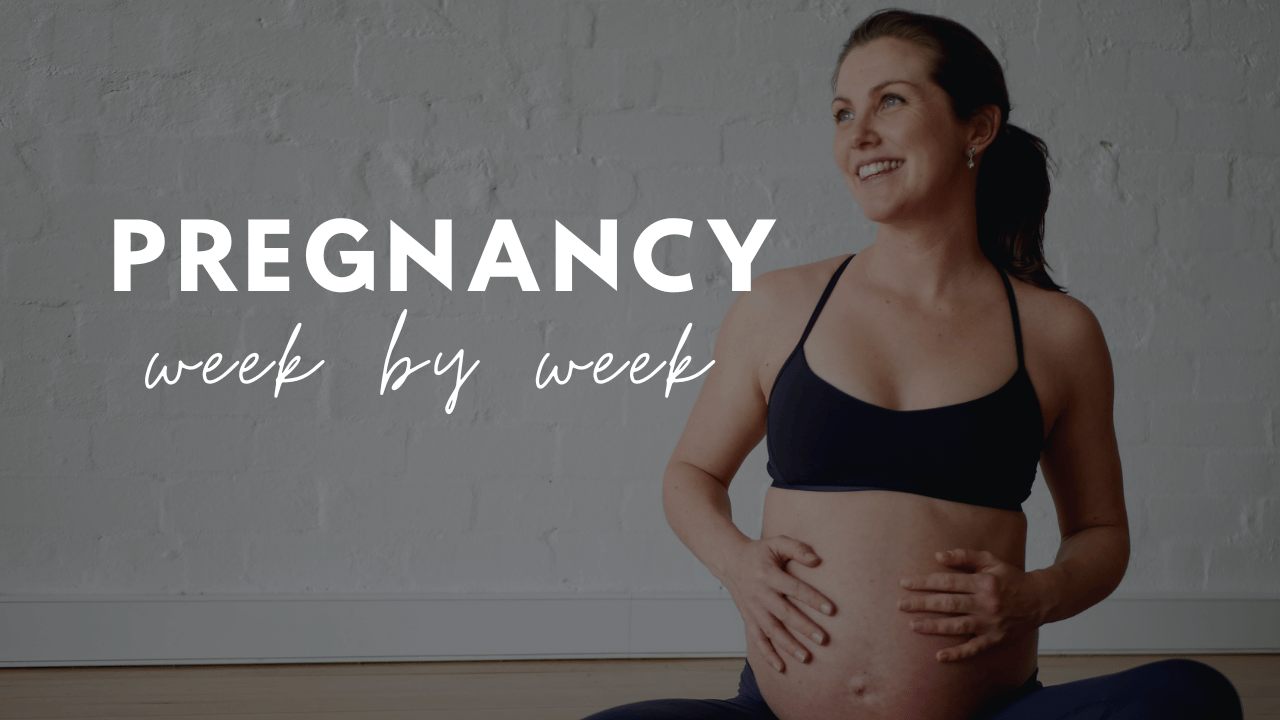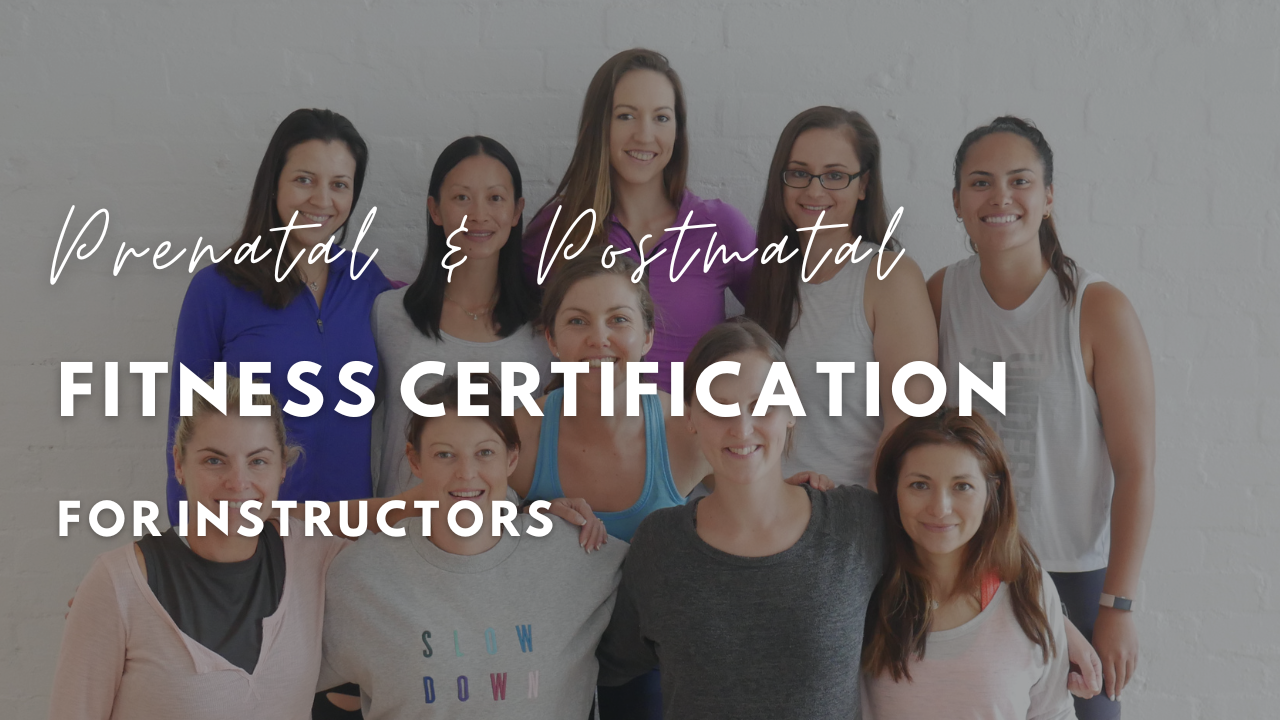Obstetrician Dr Bronwyn Hamilton Talks about Prenatal Exercise

Obstetrician Dr Bronwyn Hamilton
Along with Dr Bronwyn Hamilton (Obstetrician and Gynaecologist), we have put this post together to give you the best advice from a medical perspective about exercise during pregnancy.
We both want to share the importance of participating in a safe exercise program during your pregnancy. For not only your health and safety, but also that of your growing baby.
There is so much inaccurate, conflicting and potentially harmful information out there on the Internet with regards to exercising when pregnant
Our goal is to ensure you get the right information you deserve!
So, Is it OK to Exercise during Pregnancy?
Yes! Pregnancy is a time when women are keen to focus on their health and their unborn baby. There is never a better time to commence regular exercise once you are pregnant if you haven't already.
Pregnancy is not the time to start some extreme sport, contact sport, high impact sport or some new hot fitness fad that may cause you or your baby harm.
However; staying active and moving during your pregnancy is recommended, even if you were sedentary prior to getting pregnant.
RANCOG Recommendations
The Royal Australian and New Zealand College of Obstetricians recommends pregnant women in the absence of pregnancy complications engage in 30 minutes of physical activity most days of the week. If not all days of the week.
If previously inactive, it is recommended to start with 15-20 minute blocks and work up to 30 minutes at a time.
Your first step is to speak to your doctor and get their approval.
The key to safely exercising when pregnant is to pay attention to what your body is telling you.
Keep your exercise at a moderate level. Avoid over-heating and stay well-hydrated by drinking plenty of water.
Look Out for Warning Signs
And look out for warning signs for when you need to stop exercising such as:
1. Chest pain
2. Vaginal bleeding / leaking of fluid
3. Shortness of breath
4. Abdominal pain
5. Pelvic pain
6. Muscle weakness
7. Dizziness
8. Irregular or rapid heartbeat
9. Reduced movements of the baby.
The greatest risk is actually 'inactivity' as it could lead to:
1. Gestational diabetes
2. Excessive weight gain
3. High blood pressure
4. A higher risk for Caesarean section
Benefits of Exercise during Pregnancy
Prevention of gestational diabetes, preeclampsia / high blood pressure in pregnancy, preterm birth and musculoskeletal conditions including lower back pain, a common complaint in pregnant women.
Exercise also assists with maintenance of healthy weight, improved pain tolerance, mental health and self-image. Regular physical activity can reduce the risk Gestational diabetes -related adverse events such as having a big baby (birth-weight >4kg)
And therefore emergency cesarean section rates, and it has been shown to assist in postpartum recovery. Aside from preventing pregnancy complications regular exercise has also been shown to benefit the unborn baby giving the newborn child a neurological advantage.
Types of Exercise to Avoid when Pregnant
Avoid any high impact (Contact) exercise during pregnancy!
Why?
You risk losing your balance / you could fall and there is risk of collision and ultimately risk of causing harm to baby.
Examples of Exercises during Pregnancy to Avoid:
1. Skiing (snow and water)
2. Football
3. Soccer, basketball
4. Volleyball
5. Horseback riding
Others types of Exercise to avoid include:
1. Plyometrics
2. Jumping
3. Skipping
4. Hopping as this can put strain on the ligaments in your pelvis which can cause discomfort.
5. Running - long distance running is not advised.
And avoid any exercises that put too much strain on your abdominal wall muscles. Particularly after 20 weeks as this can cause you to develop a rectus diastasis (gap between abdominal muscles).
Seek Medical Approval
There are some medical conditions that may prevent you from exercising. As you progress through each trimester you will notice significant body changes besides your growing belly. You must listen to your body and stop trying to push the limits.
Dr Bronwyn Hamilton
ABOUT DR BRONWYN HAMILTON
Fellow of the Royal Australian and New Zealand College of Obstetricians and Gynaecologists 2016
Bronwyn is a qualified Specialist Obstetrician and Gynaecologist with experience in both Low and High Risk Obstetrics and General Gynaecology. Bronwyn graduated from Monash University with Honours in 2005. After undertaking postgraduate training in Emergency Medicine, Plastic Surgery, Psychiatry and Paediatrics she commenced her Specialist training in Obstetrics and Gynaecology.
Bronwyn trained primarily at Eastern Health and Monash Health in Melbourne with rotations at several other hospitals gaining experience in High Risk Obstetrics and General Gynaecology.





